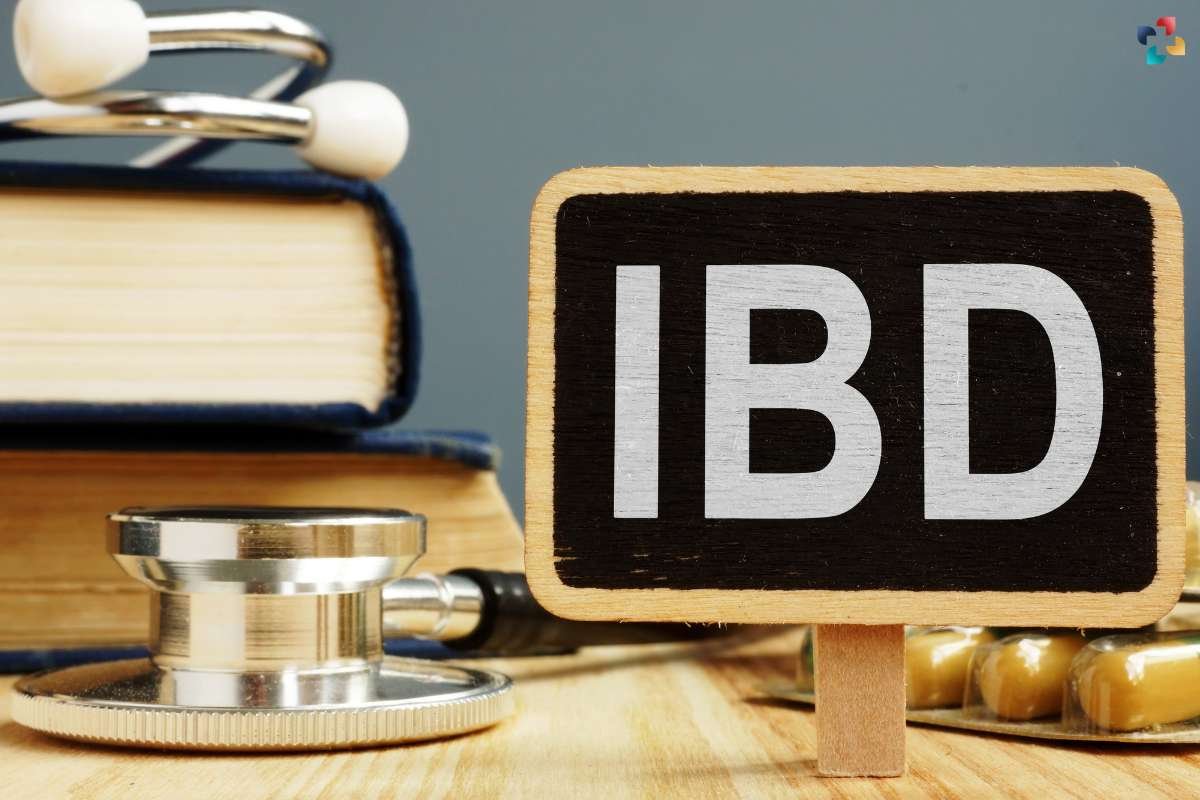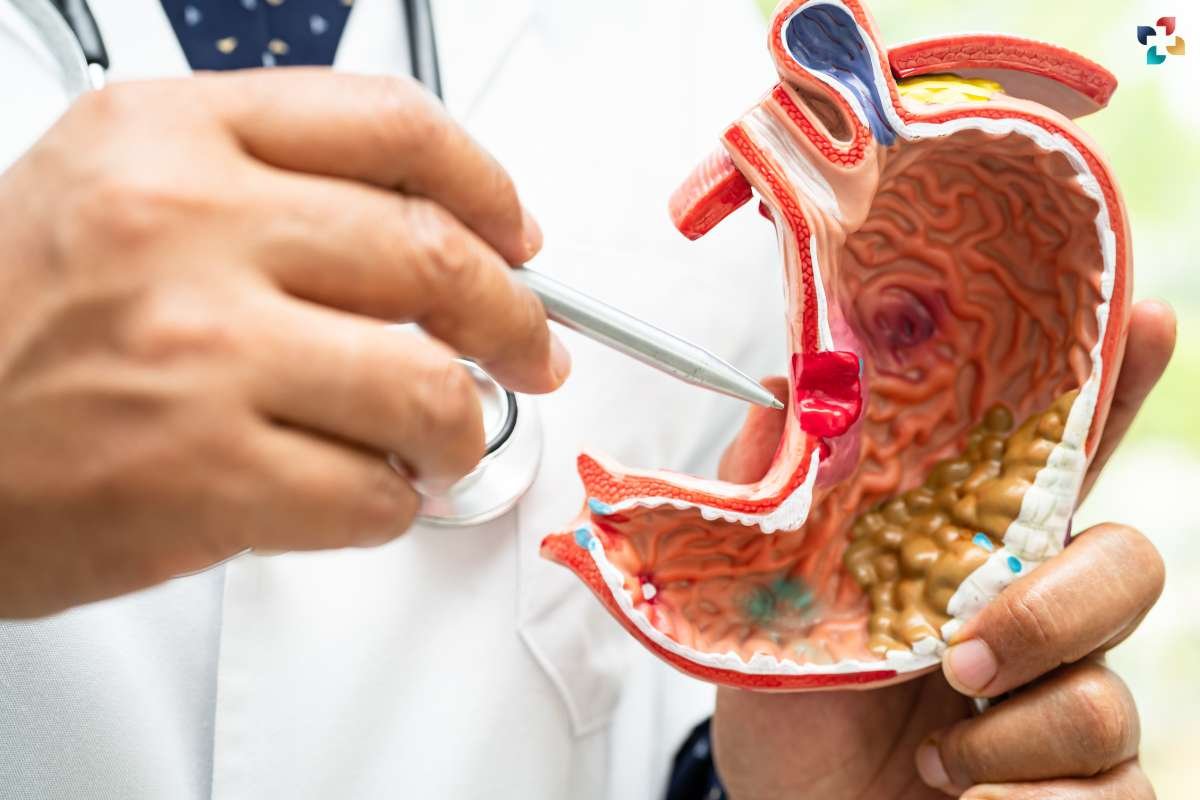Table of Contents
Introduction:
A wide spectrum of disorders affecting the digestive system, from the mouth to the anus, are categorized as digestive diseases. Abdominal pain, bloating, diarrhea, constipation, and gastrointestinal bleeding are just a few of the symptoms that can result from these illnesses that impair the gastrointestinal tract’s normal functioning. We will examine the causes, signs, diagnosis, and available treatments for a range of gastrointestinal disorders in this extensive overview.
Types of Gastrointestinal Diseases:
1. Gastroesophageal Reflux Disease (GERD)
Gastroesophageal reflux disease (GERD) is a chronic condition characterized by the reflux of stomach acid into the esophagus, leading to symptoms such as heartburn, regurgitation, and chest pain. Persistent GERD can cause complications such as esophagitis, Barrett’s esophagus, and esophageal strictures.
2. Peptic Ulcer Disease
Peptic ulcer disease refers to the formation of ulcers in the lining of the stomach, duodenum, or esophagus. These ulcers are typically caused by infection with Helicobacter pylori bacteria, prolonged use of nonsteroidal anti-inflammatory drugs (NSAIDs), excessive alcohol consumption, or smoking. Symptoms of peptic ulcers include abdominal pain, bloating, nausea, and vomiting.
3. Inflammatory Bowel Disease (IBD)

Inflammatory bowel disease (IBD) encompasses two main conditions: Crohn’s disease and ulcerative colitis. These chronic inflammatory disorders affect the gastrointestinal tract, causing symptoms such as abdominal pain, diarrhea, rectal bleeding, weight loss, and fatigue. IBD can lead to complications such as bowel strictures, fistulas, and colorectal cancer.
4. Irritable Bowel Syndrome (IBS)
Irritable bowel syndrome (IBS) is a functional gastrointestinal disorder characterized by abdominal pain, bloating, and changes in bowel habits without evidence of underlying structural or biochemical abnormalities. Triggers for IBS symptoms may include certain foods, stress, hormonal changes, and gastrointestinal infections.
5. Gastrointestinal Bleeding
Gastrointestinal bleeding can occur in various parts of the digestive tract, including the esophagus, stomach, small intestine, and colon. Causes of gastrointestinal bleeding may include peptic ulcers, esophageal varices, diverticulosis, colorectal cancer, and inflammatory bowel disease. Symptoms of gastrointestinal bleeding include hematemesis (vomiting of blood), melena (black, tarry stools), and hematochezia (bright red blood in the stool).
Diagnosis of Gastrointestinal Diseases:
Diagnosing gastrointestinal diseases often involves a combination of medical history evaluation, physical examination, laboratory tests, imaging studies, and endoscopic procedures. Common diagnostic tests for gastrointestinal diseases include:
- Endoscopy (upper endoscopy, colonoscopy)
- Imaging studies (X-rays, CT scans, MRI scans)
- Laboratory tests (blood tests, stool tests)
- Biopsy (tissue sampling for histological examination)
- Breath tests (for detecting Helicobacter pylori infection)
In addition to these diagnostic methods, newer technologies such as capsule endoscopy and virtual colonoscopy have emerged as less invasive alternatives for visualizing the gastrointestinal tract. Capsule endoscopy involves swallowing a small, pill-sized camera that captures images of the digestive tract as it travels through the body, providing valuable information about conditions such as Crohn’s disease, small bowel tumors, and obscure gastrointestinal bleeding. Virtual colonoscopy, also known as CT colonography, utilizes CT scans to create detailed images of the colon and rectum, allowing for the detection of polyps, tumors, and other abnormalities without the need for traditional colonoscopy.
Furthermore, advancements in molecular diagnostics and genetic testing have improved the accuracy and precision of diagnosing gastrointestinal diseases. Polymerase chain reaction (PCR) assays, next-generation sequencing (NGS), and serological tests for specific biomarkers can identify infectious agents, characterize microbial communities, and assess genetic predispositions to gastrointestinal disorders such as inflammatory bowel disease (IBD) and colorectal cancer.

Given the diverse nature of gastrointestinal diseases and the overlap of symptoms among different conditions, a comprehensive diagnostic approach tailored to individual patient characteristics is essential for accurate diagnosis and appropriate management. Multidisciplinary collaboration among gastroenterologists, radiologists, pathologists, and other healthcare professionals is often necessary to optimize diagnostic accuracy and ensure timely intervention for patients with gastrointestinal diseases.
Treatment Options for Gastrointestinal Diseases:
Treatment for gastrointestinal diseases depends on the specific condition, severity of symptoms, and underlying causes. Management strategies may include:
- Lifestyle modifications (dietary changes, stress management, smoking cessation)
- Medications (proton pump inhibitors, H2 blockers, antacids, antibiotics, anti-inflammatory drugs)
- Dietary supplements (probiotics, fiber supplements, vitamin and mineral supplements)
- Endoscopic procedures (endoscopic mucosal resection, polypectomy, stricture dilation)
- Surgery (intestinal resection, colectomy, hemorrhoidectomy, fundoplication)
In addition to these conventional treatment modalities, emerging therapies and innovative approaches are being explored for the management of gastrointestinal diseases. These include:
1. Biologic therapies
Biologic drugs, such as tumor necrosis factor (TNF) inhibitors, interleukin inhibitors, and integrin antagonists, target specific molecules involved in the inflammatory process and are used to treat conditions like inflammatory bowel disease (IBD) and autoimmune enteropathies.
2. Immunomodulatory agents

Unveiling the Significance of Immunoglobulin Tests: Navigating Health through Antibody Insights
The immunoglobulin test offers a thorough understanding of an individual’s immune status by revealing important information about immunoglobulins, or antibodies.
Immunomodulators, such as thiopurines, methotrexate, and calcineurin inhibitors, modify the immune response and are prescribed for patients with refractory or steroid-dependent gastrointestinal diseases.
3. Targeted therapies
Targeted therapies aim to disrupt signaling pathways or molecular targets implicated in the pathogenesis of gastrointestinal malignancies, such as colorectal cancer. Examples include epidermal growth factor receptor (EGFR) inhibitors, vascular endothelial growth factor (VEGF) inhibitors, and immune checkpoint inhibitors.
4. Microbiota-based therapies
Manipulating the gut microbiota through fecal microbiota transplantation (FMT), probiotics, prebiotics, and synbiotics holds promise for the treatment of gastrointestinal conditions associated with dysbiosis, such as Clostridioides difficile infection, irritable bowel syndrome (IBS), and inflammatory bowel disease (IBD).
5. Minimally invasive techniques

Advancements in minimally invasive surgery, such as laparoscopic and robotic-assisted procedures, have revolutionized the surgical management of gastrointestinal diseases, offering reduced postoperative pain, shorter hospital stays, and faster recovery times compared to traditional open surgery.
These evolving treatment options underscore the importance of a multidisciplinary approach to the management of gastrointestinal diseases, with personalized treatment plans tailored to individual patient needs and preferences. Collaborative decision-making involving gastroenterologists, surgeons, oncologists, nutritionists, and allied healthcare professionals is essential to optimize patient outcomes and quality of life.
Conclusion
The term “gastrointestinal diseases” refers to a broad range of minor to severe ailments that affect the digestive system. For gastrointestinal disease sufferers to achieve the best possible outcomes and enhance their quality of life, early detection, precise diagnosis, and suitable care are crucial. Many gastrointestinal disorders can be properly treated with the use of modern medical technology and treatment alternatives, enabling people to enjoy long, healthy lives. For an assessment and individualized treatment advice, speak with a medical expert if your gastrointestinal problems are bothersome and persistent.
FAQs
1. What are the common symptoms of gastrointestinal disease?
Common symptoms include abdominal pain, bloating, diarrhea, constipation, nausea, vomiting, difficulty swallowing, and rectal bleeding.
2. What are the risk factors for gastrointestinal diseases?
Risk factors include a family history of gastrointestinal disorders, smoking, excessive alcohol consumption, poor dietary habits (high in processed foods and low in fiber), obesity, stress, and certain medications.
3. How are gastrointestinal diseases diagnosed?
Diagnosis typically involves a combination of medical history evaluation, physical examination, laboratory tests (blood tests, stool tests), imaging studies (X-rays, CT scans, MRI scans), endoscopic procedures (endoscopy, colonoscopy), and biopsy (tissue sampling).
4. What lifestyle changes can help manage gastrointestinal diseases?
Lifestyle modifications such as adopting a healthy diet rich in fruits, vegetables, and whole grains, staying hydrated, regular exercise, managing stress, avoiding trigger foods (spicy, fatty, or acidic foods), quitting smoking, and limiting alcohol intake can help alleviate symptoms and improve overall gastrointestinal health.
5. Are there treatment options available for gastrointestinal diseases?
Yes, treatment options vary depending on the specific condition but may include medications (such as proton pump inhibitors, antibiotics, and antidiarrheal agents), dietary modifications, lifestyle changes, endoscopic procedures (for diagnosis and treatment), surgery (for conditions like colorectal cancer or inflammatory bowel disease), and in some cases, biologic therapies or immunomodulatory agents for autoimmune or inflammatory conditions. It’s essential to consult with a healthcare provider for personalized treatment recommendations.







